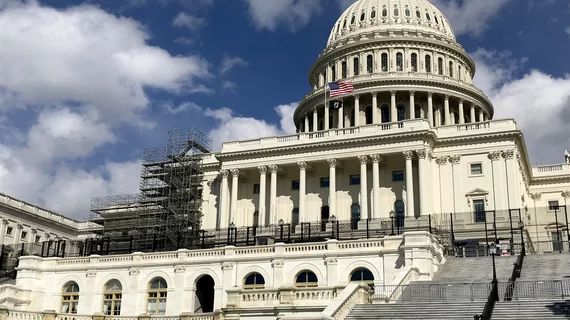Bipartisan group of 233 House members call for Medicare reform
Medicare reform appears to have bipartisan support in the U.S. House of Representatives, with 233 Republicans and Democrats signing a letter that calls on leadership to block Medicare reimbursement cuts.
In July, the Centers for Medicare & Medicaid Services (CMS) proposed cuts that would reduce reimbursement rates for care delivered to Medicare patients by 2.8% in the 2025 physician fee schedule.
In the “dear colleague” letter—addressed to Speaker of the House Mike Johnson and Minority Leader Hakeem Jeffries—the undersigned want to link CMS reimbursement to the Medicare Economic Index (MEI), which reflects actual changes to the cost of delivering patient care. The bipartisan coalition also wants the MEI to be permanently established as the primary metric CMS uses to adjust the physician fee schedule.
“The continued cuts have forced medical groups and integrated systems of care to make difficult choices, such as imposing hiring freezes, delaying system improvements, delaying implementation of care model changes including transitions to value-based care systems, and possibly eliminating services,” the letter reads.
The group added that the proposed cuts force Congress to fill in the gap with funding, leaving independent healthcare groups and physician practices in limbo. In the letter, the signees argue the 29% drop in Medicare reimbursement over the last two decades has been particularly devastating to rural areas.
“Because healthcare often comprises a large percentage of employment in rural areas, the closure of independent practices not only lessens patient access to care but also jeopardizes the livelihood of rural Americans,” the letter says.
The undersigned ask Congress to ensure any changes to Medicare reimbursement account for the cost of inflation and other economic forces that drive costs up. The 233 signees represent a majority of the 435 members of the House of Representatives.
AMA expresses support
The American Medical Association (AMA) has been outspoken in its opposition to the cuts proposed by CMS. In a statement, AMA President Bruce A. Scott, MD, said the letter is evidence that bipartisan support for Medicare reform is growing, as is “sustained physician advocacy” to fix the “badly broken physician payment system.”
He credits the AMA and its physician members with helping to spur change, adding that the "unsustainable Medicare physician payment system jeopardizes patients and puts physician practices at risk."
"Absent a rational and predictable Medicare payment system, physicians will continue to struggle to adequately pay staff in a competitive labor environment, acquire new equipment and make other investments, and maintain the financial viability of their practices,” Scott said.
The letter from House members can be read in full here.

